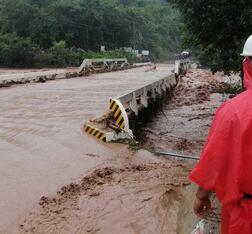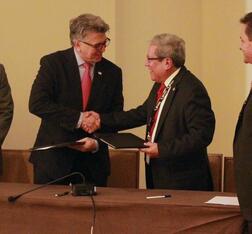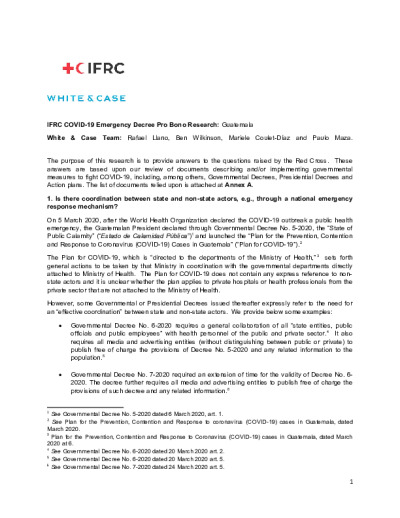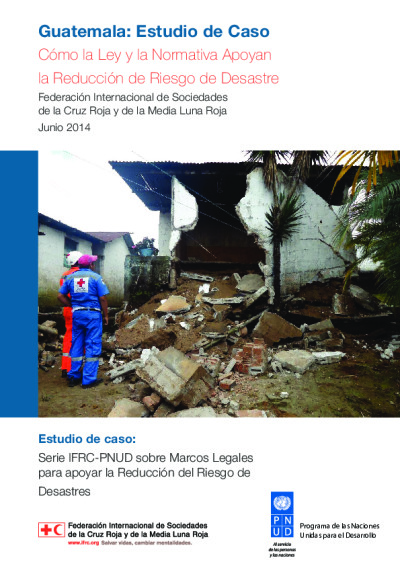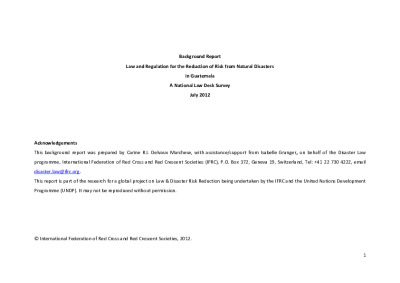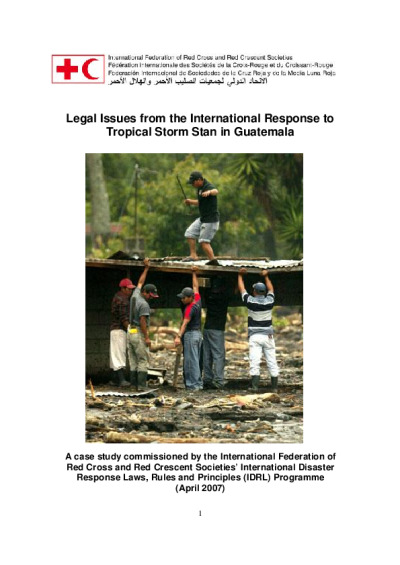In 2019, IFRC Disaster Law collaborated with the Guatemalan Red Cross to conduct an assessment of International Disaster Response Law (IDRL) in Guatemala, based on the lessons learned from the 2018 response to the volcanic eruption of the Fuego Volcano.
IFRC Disaster Law and Guatemalan Red Cross also collaborated to provide training in disaster law to more than 300 Red Cross staff and volunteers and government officials through five regional workshops carried out in November 2019. These IDRL initiatives culminated in the creation of an IDRL group comprising the Guatemalan Red Cross, IFRC Disaster Law and a group of parliamentarians interested in developing an IDRL law based on the IDRL Model Act.
Advocacy efforts on disaster law in Guatemala have resulted in several concrete outcomes. Consistent with the IDRL Guidelines, the Law for Integrated Disaster Risk Management 2019 contains tax exemptions on the importation of relief goods, and a guideline adopted by the National Coordination for Disaster Reduction (CONRED) in 2019 includes reference to IFRC Disaster Law's Checklist on Law and Disaster Risk Reduction.
Guatemala's international appeal for Hurricane Eta included provisions inspired by the IDRL Guidelines and IDRL Model Emergency Decree. This included establishing a focal point for the coordination of humanitarian aid, and procedures for the reception of medicines, food, and used clothing. The appeal also explained the modalities and channels through which donors could provide humanitarian aid and detailed the specific items required.
IFRC Disaster Law has continued to strengthen its cooperation with academic partners, specifically with the Universidad de San Carlos in Guatemala, through the facilitation of disaster law sessions.
In 2022, based on the IFRC Guide to Strengthening the Auxiliary Role through Law and Policy, Guatemalan Red Cross revised how the National Society's auxiliary role is recognized in sectoral laws, policies plans and agreements. It also reviewed legal facilities, enabling them to conduct their operations more efficiently and effectively. The report’s findings and recommendations, as well as next steps, suggested an advocacy strategy and roadmap be developed, focusing on promoting a Red Cross constitutive law and strengthened national IDRL capacities. The Guatemala IDRL Report was also updated, presented and validated by Guatemalan Red Cross and CONRED. The IDRL Law proposal was updated, including a road map for promoting legal facilities for Guatemalan Red Cross. During this period, Guatemalan Red Cross constitutive law has also been developed, presented and validated by the National Society.

